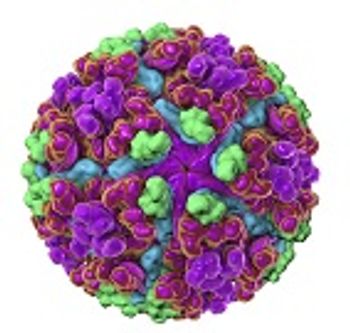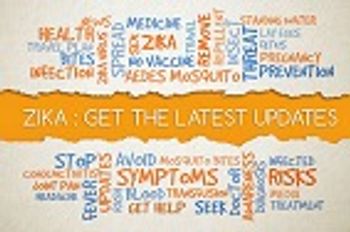
Researchers use protein misfolding cyclic amplification to screen blood samples for abnormal prions that would indicate Creutzfeldt-Jakob disease (CJD).

Researchers use protein misfolding cyclic amplification to screen blood samples for abnormal prions that would indicate Creutzfeldt-Jakob disease (CJD).

Daniel Eiras, MD, MPH, hospital epidemiologist at NYU Langone Medical Center, discusses efforts to understand the Zika virus.

Researchers from Erasmus disease the key factors needed for successful human-to-human contact-transmission of zoonotic pathogens.

With an increase in attention on arthropod-borne diseases this year, scientists from Erasmus discuss the key factors involved in human-to-human transmission of these pathogens.

Daniel Eiras, MD, MPH, hospital epidemiologist at NYU Langone Medical Center, discusses Zika response at NYU Langone Medical Center.

Contagion’s Top Five Zika-related news stories over the past year are included in this article.

On December 14, the Centers for Disease Control and Prevention (CDC) issued a Zika-related travel and testing guidance for Brownsville, Texas and the surrounding area after local officials confirmed 5 cases of the virus linked to local mosquitoes.

Today, the US Food and Drug Administration (FDA) released a safety document cautioning healthcare providers from relying solely on commercial IgM Assay results when diagnosing Zika, as false positives have been observed.

A recent study found that azithromycin topical gel can protect against Lyme disease if administered within 72 hours of a tick bite.

Daniel Eiras, MD, MPH, hospital epidemiologist at NYU Langone Medical Center, discusses Zika virus diagnostics.

A DNA-based Zika virus vaccine developed by Inovio Pharmaceuticals proves successful in phase I open-label dose-ranging human trials.

Researchers discover that being exposed to latter stages of malaria infection prevents cells from developing immunity to early liver stage infection.

Daniel Eiras, MD, MPH, hospital epidemiologist at NYU Langone Medical Center, explains how hospitals and healthcare systems can identify where resources need to be allocated when preparing for Zika outbreaks.

New, cost-effective technology from a biotech start-up may be able to revolutionize Zika diagnosis.

More on the latest news regarding Zika virus research in pregnant women and their growing fetuses is included in this article.

Researchers from Brazil evaluated the use of optical coherence tomography to assess the impact of congenital Zika virus infection on infants’ eyes.

Daniel Eiras, MD, MPH, hospital epidemiologist at NYU Langone Medical Center, talks about prevalence of Zika in pregnant women in New York.

Researchers from the Centers for Disease Control and Prevention have published more information on the incidence of birth defects in infants born to mother infected with the Zika virus.

Researchers found that 6% of fetuses or infants congenitally infected with the Zika virus developed birth defects.

Holly Frost, MD, pediatrics physician scientist at the Marshfield Clinic Research Foundation, in Minocqua, Wisconsin, discusses the prevalence of Powassan virus in humans in the United States.

The latest news regarding the spread of the Zika virus in the United States, and recent discoveries on how Zika infects the human brain is included in this article.

A defense mechanism by which plants and animals fight off RNA viruses was recently observed in human cells for the first time, offering researchers a look at new ways to treat viral diseases.

Researchers from Brazil have developed a platform that can successfully diagnose hundreds of different viruses.

The authors may have also discovered a potential therapeutic target for the complication.

Scientists are studying whether wild animals play a role in the transmission of Heartland virus to humans.